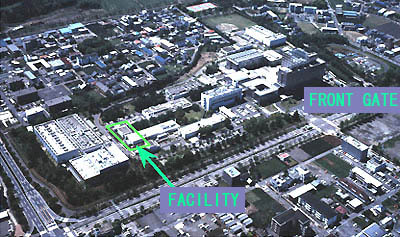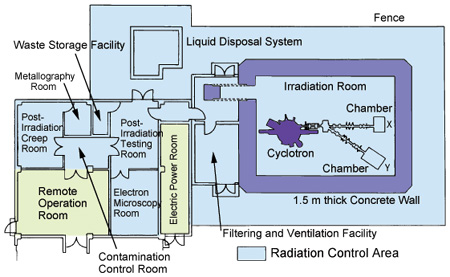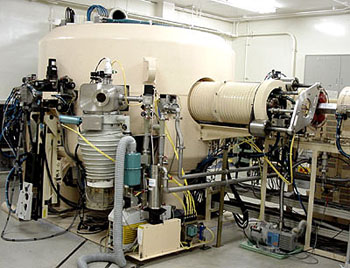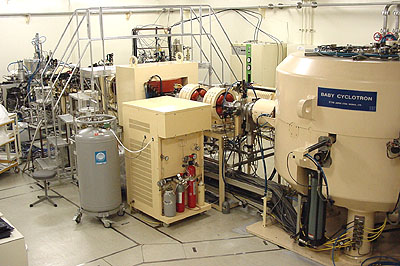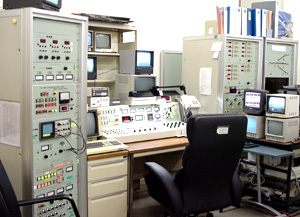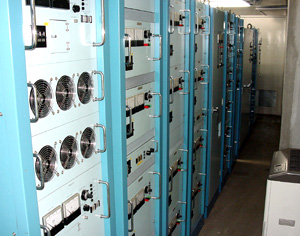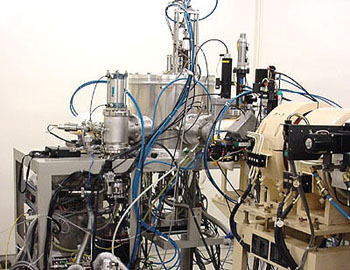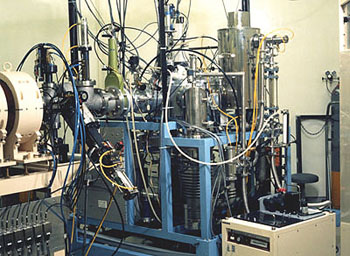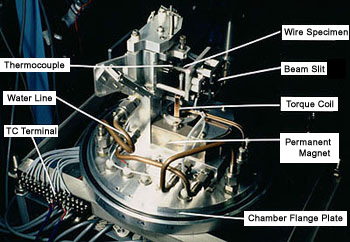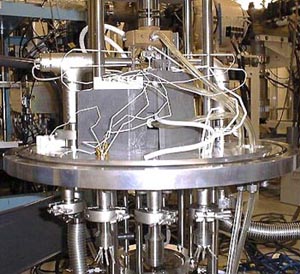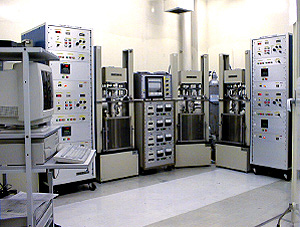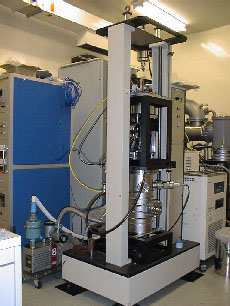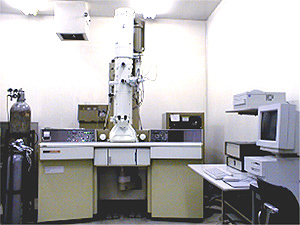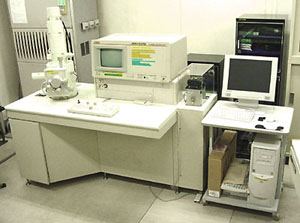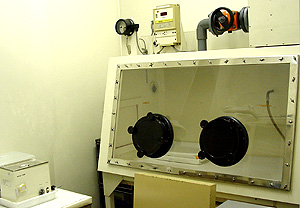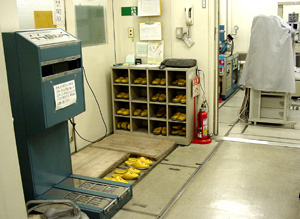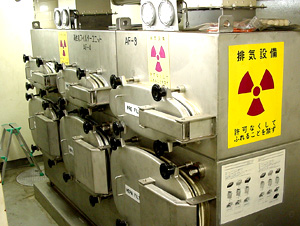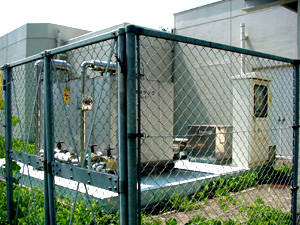

@
Welcome !!
Cyclotron Materials Irradiation Facility was established in 1987 at the former National Research Institute for Metals, STA, with a partial modification of the Environmental Effect Research Building and construction of the cyclotron housing at its Sengen site. The facility is now operated by National Institute for Materials Science. Since then, it has been actively utilized primarily for the irradiation effect studies of nuclear materials. Also a number of collaborative research with universities, national laboratories such as JAERI, and industries have been carried out using this facility. Presently, the 1st and the 2nd laboratories of Mechanical Properties Research Group of NIMS are jointly in charge of the facility.
One of the most significant features of this facility is a capability of in-situ irradiation experiments. Various techniques and equipment, as well as experiences, have been accumulated to satisfy these requirements. Furthermore, the cyclotron is dedicated only to the materials research so that a very long, continuous irradiation is possible in this facility. Such uniqueness makes it very valuable for the studies of radiation effects on materials even from a global point of view.
@
Basic Features of the Cyclotron
Model: Japan Steel Works BC-1710 Compact Cyclotron
Ions Species and Maximum Ion-Currents:
@ 50 micro Amps. @ protons 50 micro Amps. @ deuterons 50 micro Amps. @ 20 micro Amps @ 20 micro Amps
The Number of Bean Lines and Chambers: 2@
Location of the Facility
A part of Environment Effect Research Building and its Annex at Sengen Site of NIMS
@
Environment Effect Research Building and Cyclotron Facility
@
@
Whole operation of cyclotron and in-situ experiments must be done remotely.
Please click where you want to see the inside.
It'll automatically jump to the place.
(back to the Top)
@
Cyclotron, Beam Line and Chambers (from the shielding door position)
(back to the Facility Map)
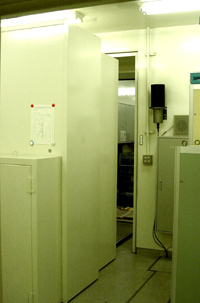
1.5m Thick Concrete Shielding Door of the Cyclotron Room
(back to the Facility Map)@
Operation Console and Power Units of the Cyclotron
Remote Operation Console for Cyclotron and Beam-Lines
(back to the Facility Map)
Power Units for Cyclotron and Beam-Lines
(back to the Facility Map)@
Irradiation Chambers and In-Situ Experiment Equipment
X-Course Chamber (used mainly for Irradiation Creep and Fatigue Experiments)
Y-Course Chamber (mainly for Post-Irradiation Experiments like Helium Implantation)
Torsional Irradiation Creep Apparatus (Claims World's Highest Strain Resolution)
@@
In-Beam Fatigue Testing Machine (Computer Enables Very Complex Loading Scheme
and Wide-Range, High-Resolution Strain Measurement)
Tensile Irradiation Creep Apparatus (with Novel Loading and Strain-Measurement Systems)
(back to the Facility Map)@
Post-Irradiation Examination Equipment
Post-Irradiation Creep and Fatigue Rupture Testing Machines
(4 Units, mainly for the Helium Embrittlement Evaluation)
(back to the Facility Map)Post-Irradiation Tensile and Fatigue Testing Machine
(Equipped with the Same Mechanism as that of the In-Situ Testing Machine)
(back to the Facility Map)
Transmission Electron Microscope (JEOL JEM-2000FX 200kVAwith PEELSj
Scanning Electron Microscope (JEOL JSM-5310 30kV)
(back to the Facility Map)
Glove Box for Handling the Irradiated Specimens
(back to the Facility Map)@
Equipment for Radiation Health Physics
Hand-Foot-Clothes Monitor in the Contamination Control Room
(back to the Facility Map)
Hepa Filter Boxes (Two Independent Units for Cyclotron Room and Experiment Rooms)
(back to the Facility Map)
Gamma-Ray Spectrometer for Radioisotope Identification of the Irradiated Specimens
(back to the Facility Map)
Reservoir Tank and Water Monitoring Equipment for Liquid Disposal Control
(back to the Facility Map)
![]()
![]()
